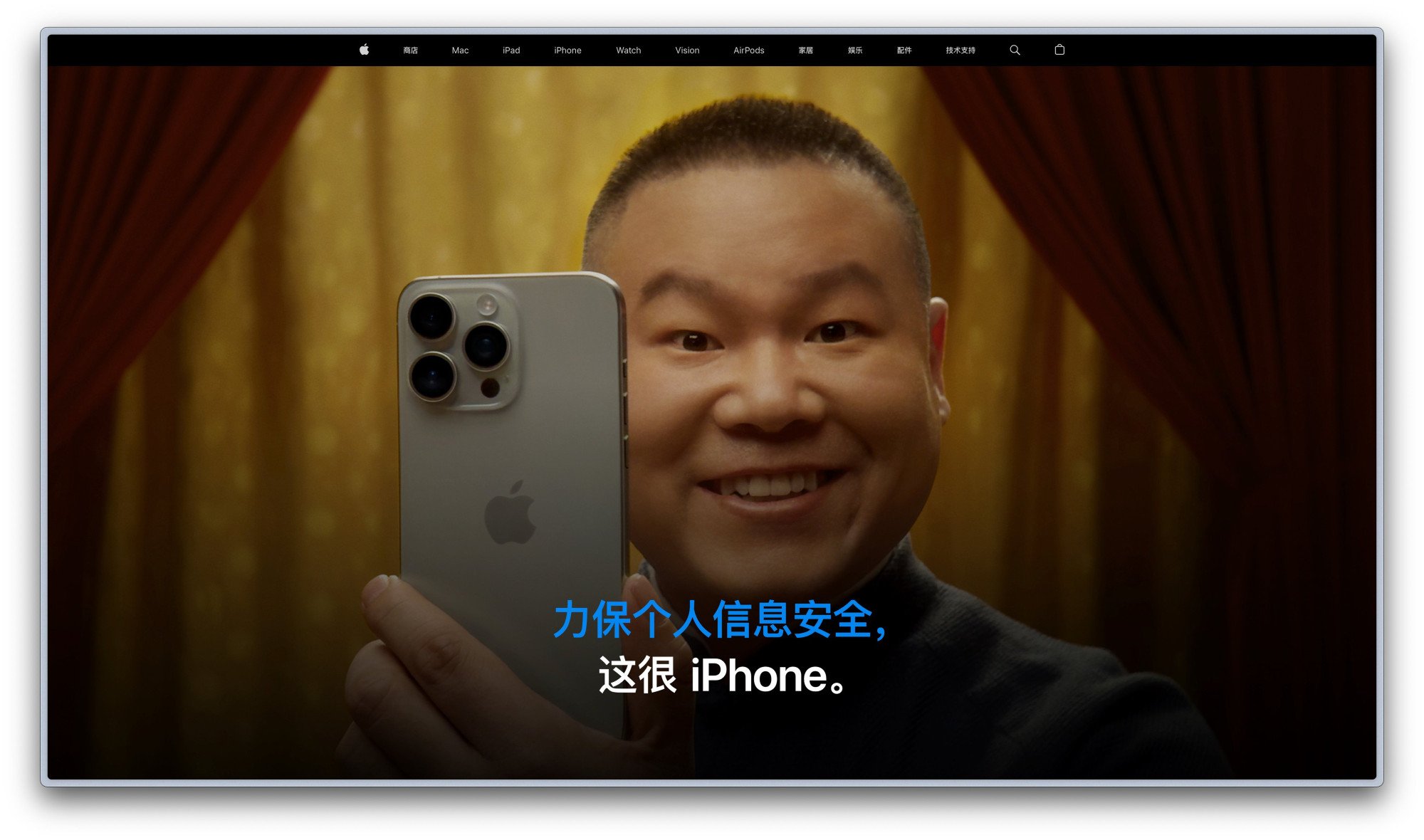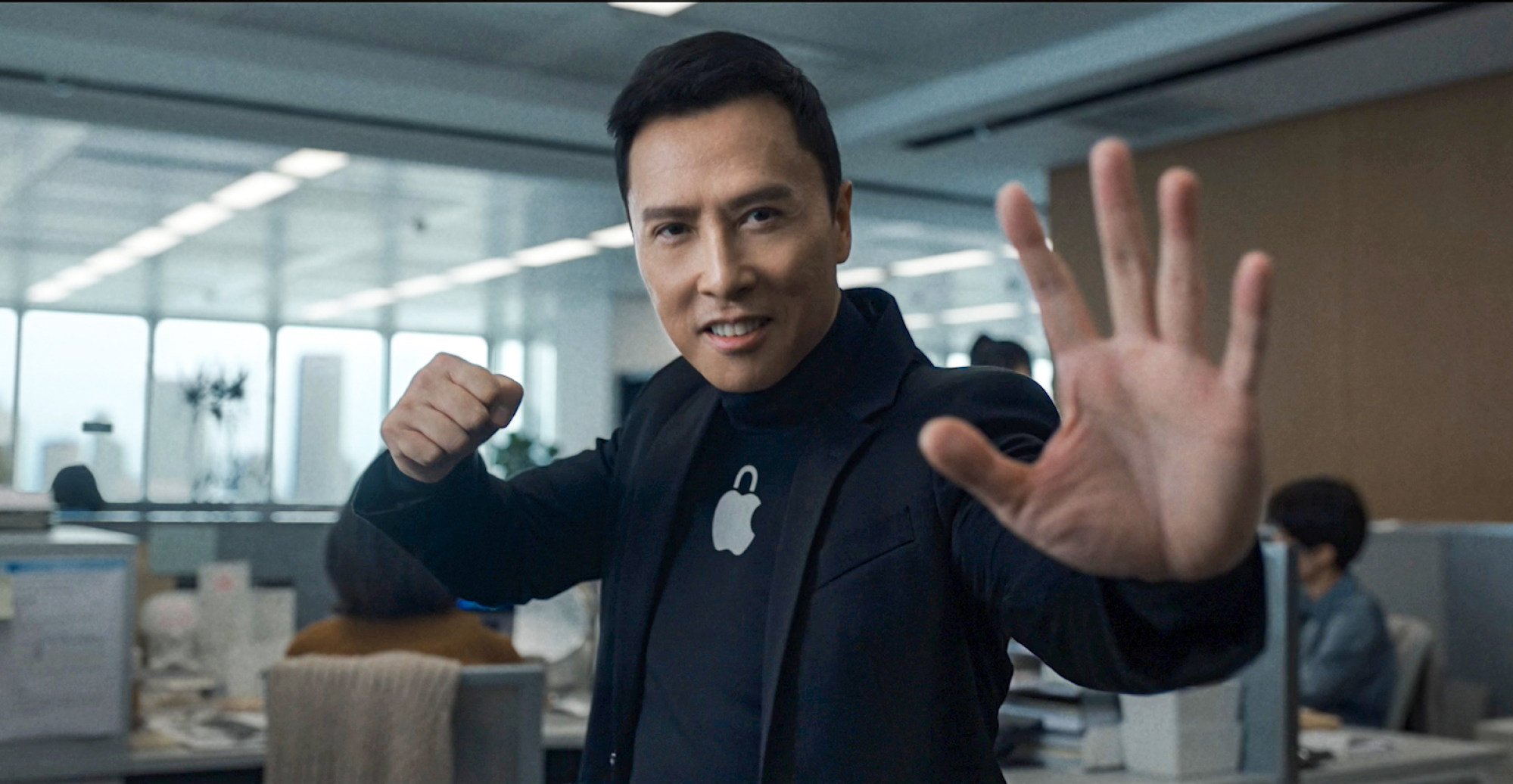Apple is using humour to trumpet the privacy and security functions of its iPhones in its latest advertising campaign targeting Chinese consumers, at a time when personal data leaks on Android phones have become a concern in China.
Apple has published video skits featuring well-known Chinese comedian Yue Yunpeng, in which an Apple employee introduces him to iPhone’s privacy features including a strong password, Face ID and private browsing on Safari.
In one of the videos, Yue, wearing a black Chinese robe, forgets his password during a crosstalk performance. An Apple employee in the audience advises him to use the iPhone’s automatically generated password that is protected by Face ID.
Do you have questions about the biggest topics and trends from around the world? Get the answers with SCMP Knowledge, our new platform of curated content with explainers, FAQs, analyses and infographics brought to you by our award-winning team.
In another video, the Apple staffer introduces Yue to Safari’s private browsing feature, that can stop websites from tracking or identifying the user, as the comedian wears a disguise over fears of being snooped on and tracked.

The videos went viral on Chinese social media, as netizens expressed surprise at the collaboration between the US tech giant and a grass-roots Chinese comedian, praising the creativity of the videos. The collaboration quickly became the top trending topic on Chinese microblogging platform Weibo, attracting over 110 million views and 21,000 discussions as of Wednesday.
The new campaign comes as Apple reiterates its commitment to privacy in China, where consumers are increasingly wary of data security issues and regulators are tightening their scrutiny of how businesses are handling user data.
Privacy has also emerged as a key issue as Apple moves to incorporate generative artificial intelligence (AI) in its devices. The company highlighted its focus on privacy in its AI strategy outlined last month, where it promised to handle most of the AI computing on the device, and use its Private Cloud Compute system to handle more complex AI problems.
This is not Apple’s first attempt to appeal to Chinese consumers’ concerns over data privacy. In May last year, the company launched a one-minute video featuring Hong Kong martial arts star Donnie Yen Ji-dan, who delivered kicks and punches when anyone invaded the privacy of iPhone users.

However, Apple has faced doubts about its privacy protection. Some Chinese iPhone users reportedly received smut spam via iMessage, which the public security authority in Hangzhou, capital of eastern Zhejiang province, attributed to iCloud account leaks, according to a local report in 2023. In China, Apple has ceded legal ownership of its customer data to Guizhou-Cloud Big Data, a company owned by the provincial government.
Apple, which led smartphone sales in China in the fourth quarter of last year, lost its throne after sales declined 19.1 per cent in the first quarter, in the face of rising competition from Chinese rivals including Huawei Technologies, according to market research firm Counterpoint. It now ranks No 3 in the market after Chinese manufacturers Vivo and Huawei spin-off Honor.
The company has been defending its position by offering steep discounts on iPhones, a move which helped boost its smartphone sales by 2.7 per cent during the 618 online shopping festival, Counterpoint data showed.
More from South China Morning Post:
- Alipay drives evolution of contactless payments in China with new tap-and-pay service
- Chinese AI chip makers sell themselves at Shanghai conference with Nvidia comparisons
For the latest news from the South China Morning Post download our mobile app. Copyright 2024.





